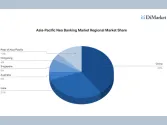
Drug makers face revenue cuts as healthcare spending drops
But private consumption will stay strong.
Pharmaceutical companies stand to lose revenues as the Thai government cuts back on healthcare spending, according to a report by BMI Research.
This is despite the fact that the consumption of medicines and services will continue to grow, driven by higher incidences of cancer and HIV/AIDs which is expected to cumulatively exceed 1.25mn cases by 2020.
Financial constraints will be a persistent challenge to Thailand's universal healthcare system. C
"With the rapidly rising demand for and consumption of drugs, the country’s government will face sustainability issues in ensuring the populations' access to medicines in a cost-effective manner," the report warned.
In particular, policymakers have a strong incentive to rationalise spending given that it makes up over 80% of healthcare financing, with the majority of the Thai population covered by one of three healthcare schemes.
"Given the greater scrutiny on healthcare spending, increasingly forceful medicine pricing pressures will likely continue over the coming years which will in turn pose revenue earning challenges for innovative drugmakers," the report said.
BMI Research also expects that political risks will further weigh on investor sentiment, with elections likely to be delayed.
"Political shifts and disputes in Thailand will further undermine the country's universal healthcare programme. With the sustainability of the programme in doubt, co-payment has become a possible alternative source of financing along with budget cuts. This will have negative ramifications for access to medicines and weigh on the commercial prospects for pharmaceutical companies," the report said.



















 Advertise
Advertise





